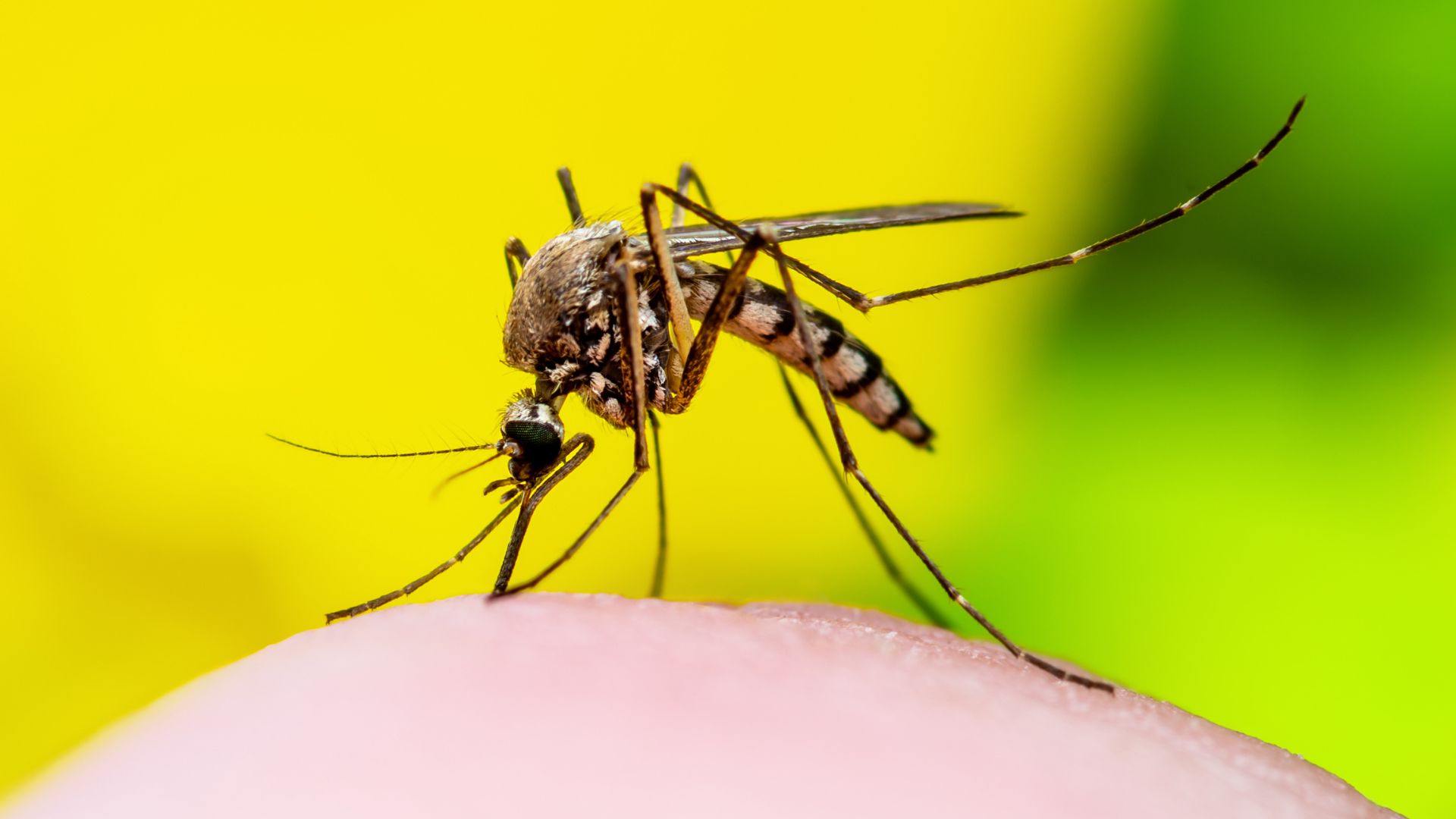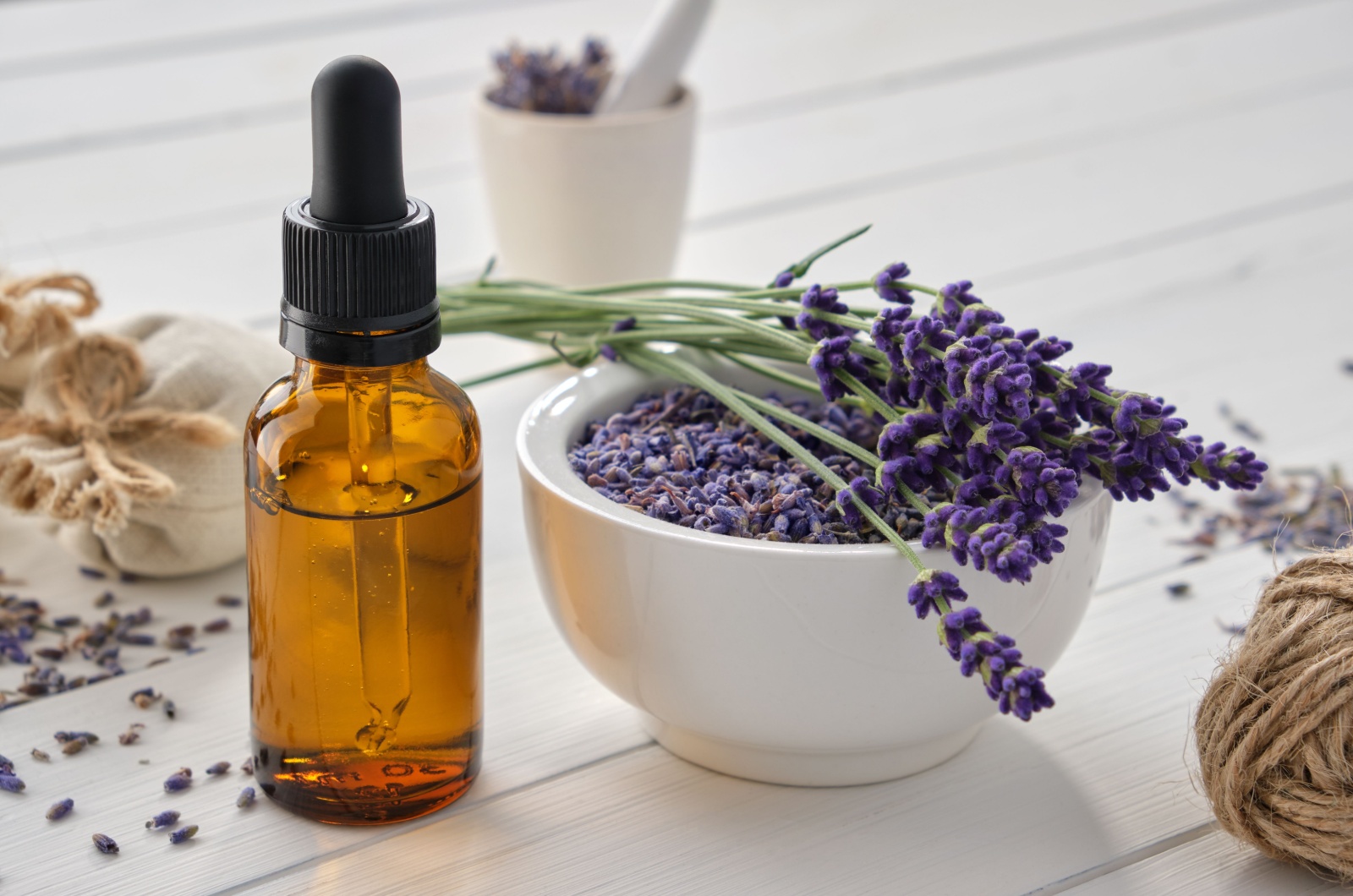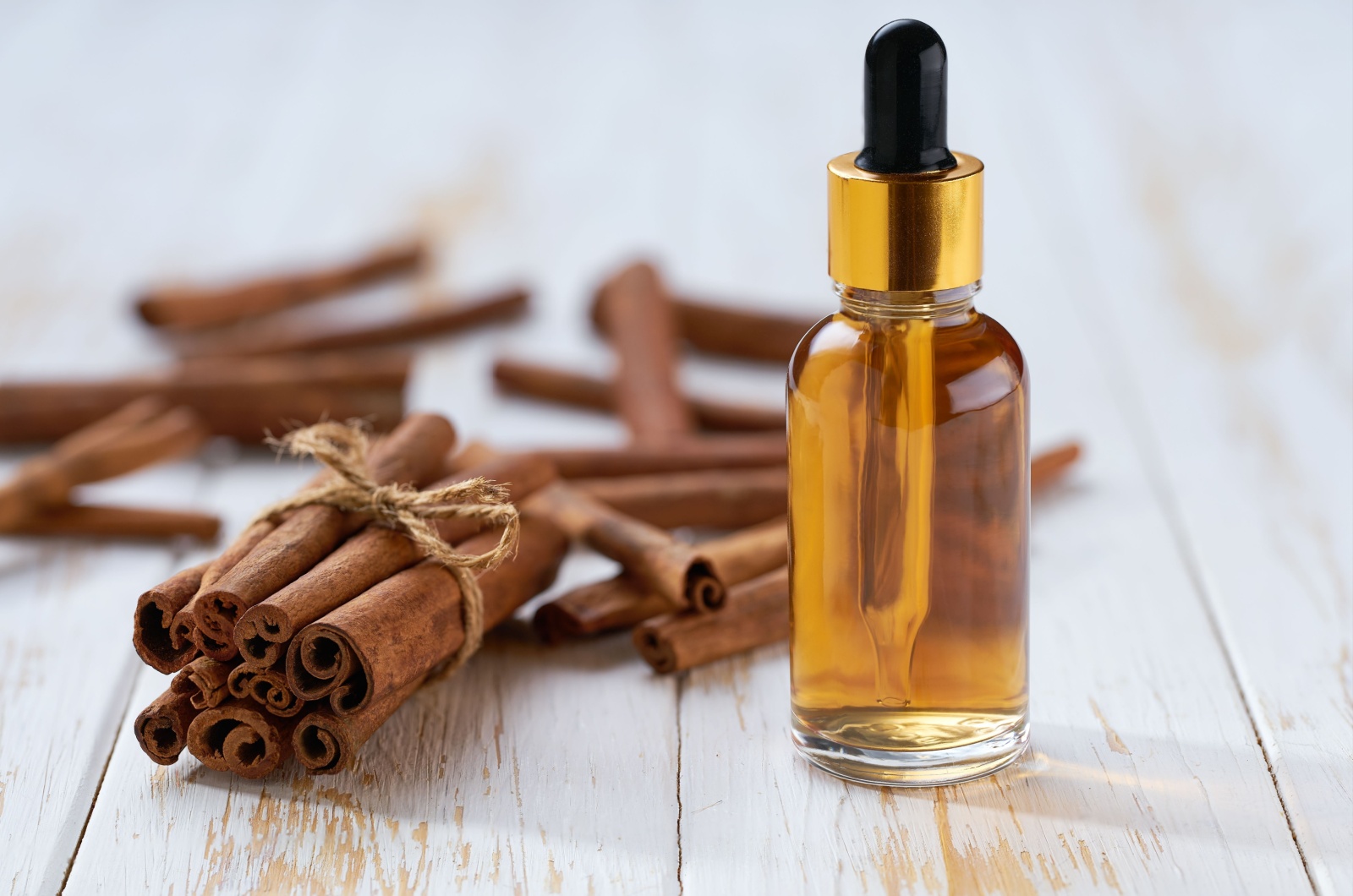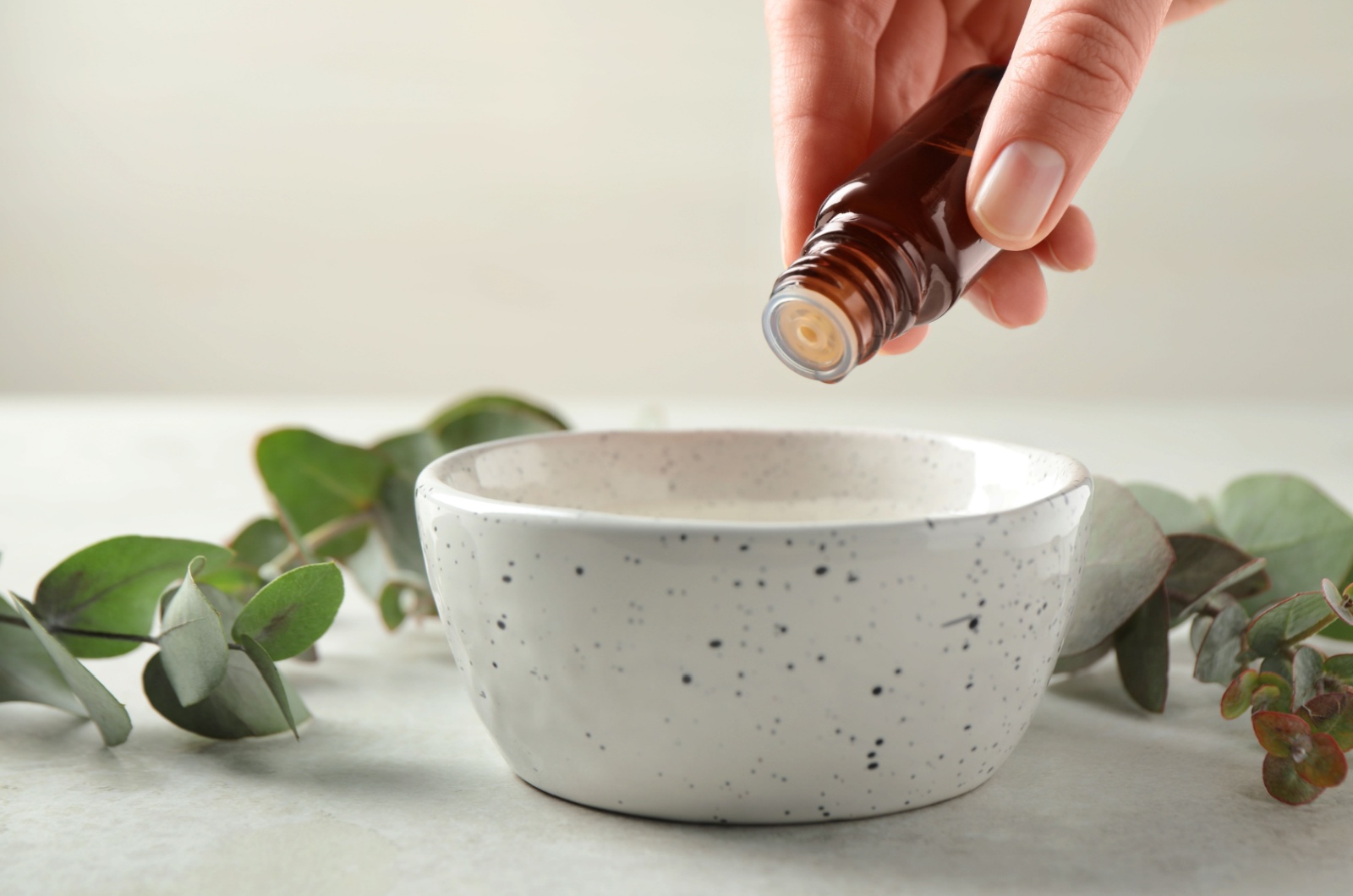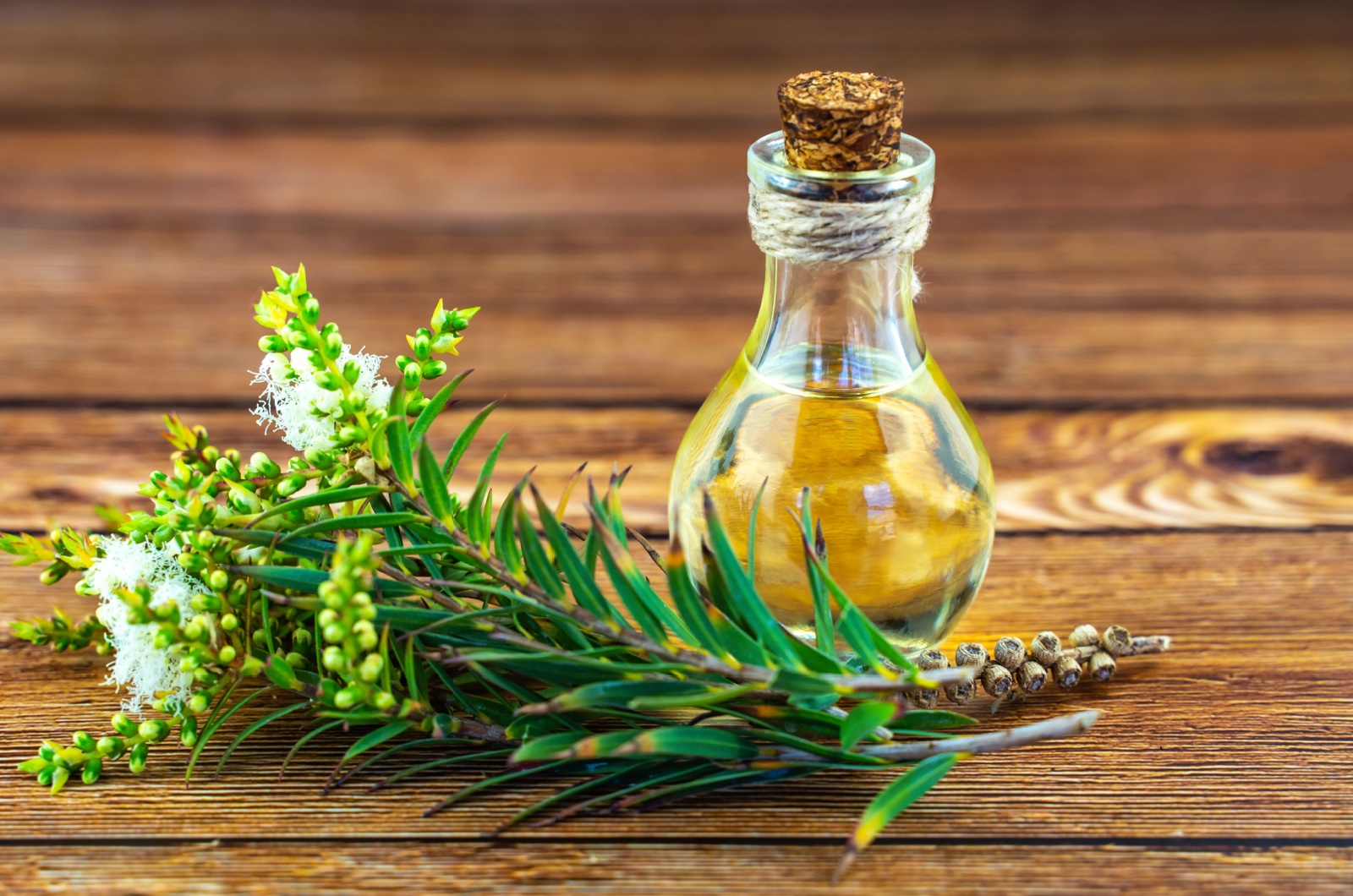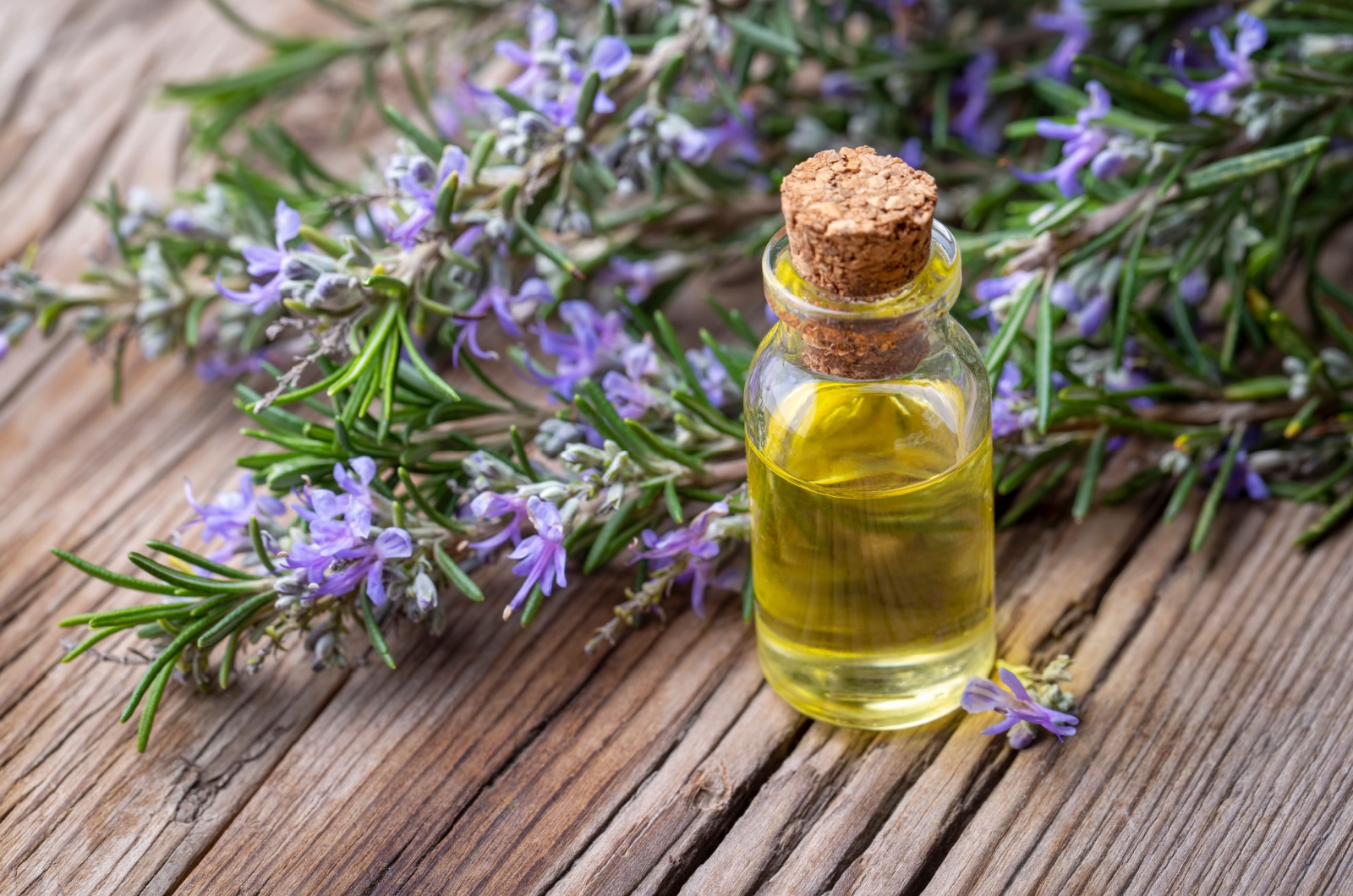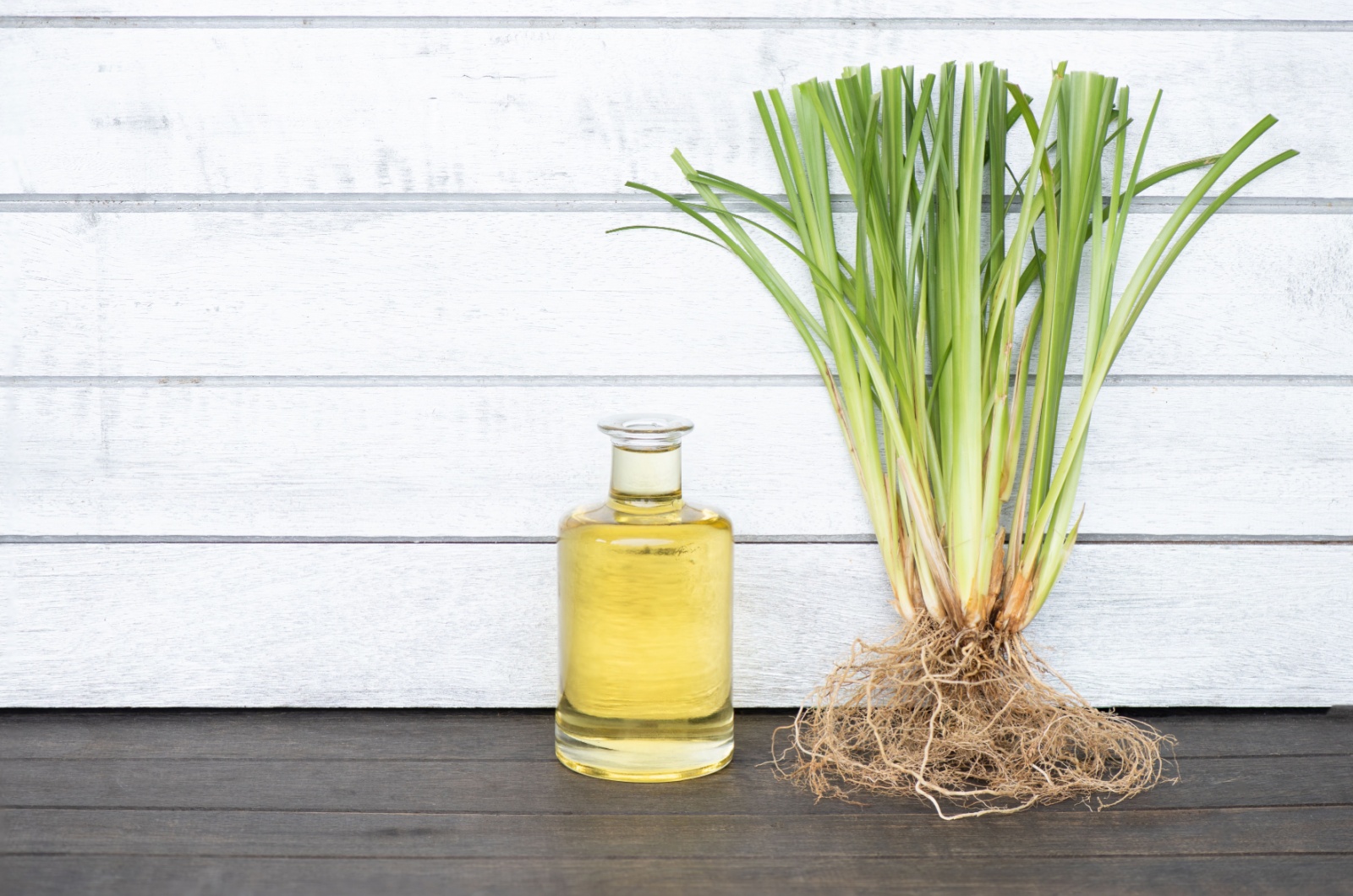It’s a perfect summer’s day, the sun is shining, birds are chirping, and then… mosquitoes! Ugh!
These tiny insects are a true buzzkill, especially if you are one of those folks that tend to get bitten more than others (I know the feeling). I have been struggling with mosquitoes ever since I was a little kid, trying every repellent under the sun. But let’s be honest, most of them fall short of their promises.
For the longest time, I was on a mission to outsmart those pesky bloodsuckers, but nothing seemed to quite do the trick (trust me, they’re tougher than they look). Then, my brother suggested I give essential oils a try. And to this day, I thank him for that brilliant suggestion!
Now, I get to enjoy serene summer evenings on my porch, surrounded by twinkling lights and the sweet scent of essential oils.
What’s even better is that there are 14 oils you can try for repelling mosquitoes!
These include…
1. Lavender Oil
Lavender is well-known for its beauty and that wonderful smell. But it’s more than just pretty – it can also keep mosquitoes away.
Yep, a 2019 study in the Malaria Journal found that lavender oil can completely repel those pesky Anopheles mosquitoes (the ones that carry malaria) for a solid eight hours (that’s some serious mosquito-fighting skill packed into those tiny purple buds).
How to use it: To repel mosquitoes with lavender oil, dilute a few drops in a carrier oil like coconut or jojoba, then apply it to exposed skin or clothing before heading outdoors.
Related: Here’s Why Using Lavender Oil Around Your Patio Is The Ultimate Summer Trick
2. Neem Oil
If you are not a gardening newbie, you must have heard about the magical neem oil. It can be used as a pesticide, fungicide, and mosquito repellent, all at once.
Anytime some pesky bug attacks my garden plants, I always go for neem oil first. It’s always a better idea to use natural solutions instead of chemicals that can do more harm than good.
I’ve heard a lot of good things about neem oil. Turns out, it might protect you from Anopheles mosquitoes just like lavender oil!
In a village in Ethiopia, neem oil was put to the test against malaria-carrying mosquitoes. This study revealed that the neem oil provided complete protection against these mosquitoes for up to three hours (how cool is that?).
How to use it: Dilute it with a carrier oil and apply directly to the skin. Alternatively, mix a few drops of neem oil with water and spray it around outdoor areas to deter mosquito
3. Sweet Basil
Here’s one of my fave herbs: sweet basil!
I absolutely love its delightful fragrance and I often add fresh basil to my meals (everything tastes good with a little bit of basil on it).
However, it has occurred to me that its stress-relieving scent can be used to stress out none other than our bloodsucking enemies – mosquitoes.
I found some research from the Earth and Environmental Science Conference about using sweet basil essential oils as protection against malaria-carrying mosquitoes. Turns out, they offer very strong repellency, especially within the first hour of application.
The study highlighted that a 25% concentration of sweet basil oil can provide up to six hours of effective protection (bye, bye mosquitoes!).
How to use it: Dilute your sweet basil oil with another carrier oil and then apply it onto your skin. You can also diffuse sweet basil oil indoors or apply it to your clothing or outdoor surfaces.
Related: These 10 Pest-Repellent Plants Will Keep Bugs Away From Your Yard
4. Cedarwood Oil
You must have heard of cedarwood essential oil since it is commonly used in fragrances and bath products (though I prefer vanilla over cedarwood). But cedarwood can do one thing vanilla can’t, and that is repel pests.
Cedarwood is a popular natural pesticide that is also applied to pet collars to repel fleas. So naturally, I thought that it would also keep those mosquitoes away. Luckily, I was smart enough to do my research before applying it as a sole mosquito repellant.
Turns out, recent research suggests that cedarwood oil may not be as effective in warding off mosquito bites as other essential oils. A study in the Journal of Medical Entomology reported that cedarwood failed to deter mosquitoes effectively.
Another study from 2023 tested a 10% cedarwood emulsion in lotion form and found it provided only twenty minutes of protection from mosquito bites… so, you can still use it, but you would have to reapply it much more frequently!
How to use it: Mix a few drops with a carrier oil like coconut oil and then apply it to your skin. Please note that you should reapply it every 20 minutes for it to repel mosquitoes.
5. Cinnamon Oil
My mom always used cinnamon to deter ants from our house, so I ended up wondering: could cinnamon be the cure for those annoying mosquitoes?
Science says yes!
I found a study in which researchers tested 20 essential oils for their effectiveness in repelling disease-transmitting mosquitoes and ticks. Out of all the oils tested, cinnamon oil showed the most promising results.
It can be even combined with a lotion – this way, the cinnamon oil can provide one of the longest-lasting protections against ticks and flying insects. It consistently outperformed other oils in the study, making it a standout choice for natural insect repellent.
How to use it: I mixed cinnamon oil with my lotion and it worked like a charm. But you can also combine it with a carrier oil or add it to a spray bottle with water and spray around.
Related: Discover How A Sprinkle Of Cinnamon Can Make Your Garden Thrive
6. Citronella Oil
While I was browsing through these scientific articles, I also stumbled upon an interesting one regarding citronella oil.
Citronella is a popular oil that is commonly used for warding off mosquitoes, but there’s more to know. This research from 2018 confirms citronella’s effectiveness, though it needs frequent reapplication (every 20-to-60 minutes), just like the cedarwood oil.
Another study compared citronella to DEET, showing it’s not as potent alone but can extend protection up to three hours when combined with vanillin, an organic compound.
How to use it: Dilute it with water and spray it around your outdoor space or mix a few drops with a carrier oil and apply it to your skin.
7. Eucalyptus Oil
I think we can all agree on one thing: eucalyptus is undeniably one of the most beloved essential oils.
My grandma always used it for her wrists, but since most of these essential oils are used as insect repellents, why not put eucalyptus oil to the test?
According to a 2021 study, this oil showed a 77.78% effectiveness in repelling malaria vector mosquitoes. But when combined with clove essential oil, its repellency soared to 94.44% – these two are kind of like a power couple!
How to use it: Add a few drops of carrier oil and apply it to your skin, or diffuse it with water in a spray bottle and spritz around your home or garden. Don’t forget to add some clove essential oil to the mix!
8. Petitgrain Oil
Here’s yet another interesting oil that isn’t just used for aromatherapy – petitgrain oil!
Truth be told, I wasn’t always a fan of this essential oil. But once I read this one Insect study, petitgrain oil quickly became one of my favorites.
Turns out, this oil offers an impressive 270 minutes of complete protection from yellow fever mosquitoes and an outstanding 360 minutes against Culex quinquefasciatus (known for their nighttime activity in the southern U.S).
They even compared it to citronella (imagine mixing the two together!).
How to use it: Combine it with other oils or add it to water in a spray bottle and mist it around your outdoor areas.
9. Tea Tree Oil
I have used tea tree to fight off nasty fungal diseases, but mosquitoes? That was new to me.
However, in science we trust!
While its mosquito-repelling effects haven’t been extensively researched, a study from 2005 compared 50% tea tree oil with a 7% DEET repellent against Aedes aegypti mosquitoes. Surprisingly, tea tree oil performed just as well as DEET, providing protection from mosquito bites for up to seven hours.
Plus, you get to use tea tree oil for many different purposes (remember, it also has antimicrobial and anti-inflammatory properties).
How to use it: It’s important to combine it with a carrier oil before application. Just like the others, you can also combine this with water and spray it in your garden.
10. Clove Oil
Did you know that clove essential oil is quite the multitasker? Me neither.
I recently found out that in addition to helping us with tooth pain and tummy troubles (the universal remedy), it can actually help keep those bloodsuckers far away from our skin.
A study in the Journal of Medical Entomology showed that clove oil could keep these pesky biters away for up to three and a half hours. Another study discovered that clove bud oil, even in tiny amounts, was just as effective at keeping Aedes aegypti away as any other conventional insect repellents.
How to use it: You can make a homemade lotion by mixing a few drops with a neutral lotion base. You can also diffuse clove oil indoors to deter mosquitoes, or mix it with water and alcohol to create a spray for your clothes and outdoors
11. Rosemary Oil
Ahh, rosemary… I honestly don’t know anyone who doesn’t like rosemary. And how about that oil? It’s good for hair growth and some other things, like destroying flying critters!
I once experimented with rosemary essential oil during a particularly buggy camping trip, and it made a noticeable difference. So, I did some research to see what the actual deal is.
And according to this one study from Physics journal, it turns out that rosemary oil at a 24% concentration could protect you from Aedes aegypti mosquitoes for four hours with a 92.15% success rate.
Another study from the Asian Pacific Journal found it effective against mosquitoes that transmit Japanese encephalitis (the scary virus that spreads through mosquitoes).
How to use it: Combine a few drops of this lovely oil with distilled water and pour it in a spray bottle. Shake well before spraying it onto your skin, clothes, and around outdoor areas where mosquitoes are present.
Related: 20 Genius Ways To Use Rosemary That Will Surprise You
12. Patchouli
If your family practices traditional medicine like mine does, then you must’ve heard of patchouli!
It can cure anything from coughs and fevers to anxiety and depression. But when it comes to repelling insects, patchouli isn’t the strongest contender on its own.
I really thought it would be as effective as it has medicinal properties, but according to a 2022 study in the Insects journal, patchouli provided complete protection for just 90 minutes.
But don’t be disappointed just yet!
When patchouli is combined with sage, it can protect you from Anopheles dirus mosquitoes for a solid 270 minutes. So if you have patchouli on hand, pair it with sage and enjoy your time outdoors (mosquito-free!).
How to use it: Dilute it with a carrier oil and add some sage to make the solution more effective.
13. Vetiver Oil
All those folks who live in tropical regions must have heard of Vetiver oil. Known for its calming aroma, this oil is great for stress relief and improving concentration (I even use it during my evening yoga sessions for a soothing ambience).
And when it comes to repelling insects like termites, beetles, and ticks, vetiver does the job well. However, mosquitoes are a different story.
This one study showed that vetiver offered just 30 minutes of complete protection against mosquitoes. Another 2023 study found vetiver oil works better when paired with β-caryophyllene oxide (remember to mix your potions first!).
How to use it: Mix it in with a carrier such as almond oil and don’t forget about β-caryophyllene oxide. Reapply it often for continued protection.
14. Peppermint Oil
Let’s finish this list off with one of the most effective mosquito repellents – peppermint!
Mint leaves are commonly used to deter insects, but could a few drops of peppermint oil be just as effective? I mean, I love adding mint leaves to my summer drinks, but I never knew they had hidden superpowers!
So naturally, I did my thing and found a scientific article which states that peppermint oil made by steam distillation is quite effective in keeping Aedes aegypti mosquitoes away.
These bloodsucking insects, commonly referred to as yellow fever mosquitoes, can spread diseases including dengue, zika, and yellow fever (yikes!). However, in this study, the human volunteers were shielded from these insects for a whole 150 minutes by peppermint oil. Amazing, huh?
How to use it: Mix it with a carrier oil, just like you would with the other oils, and apply it straight to areas of skin that are susceptible to mosquito bites. If not, combine it with water to make a spray and apply it everywhere.
Also read: This Planting Technique Can Keep Your Garden Pest-free!

